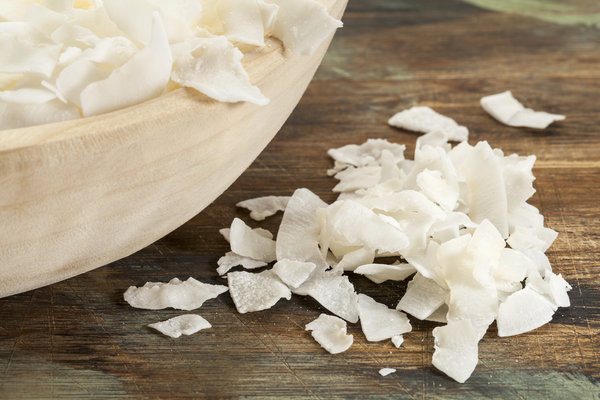Coconut shells

You may have heard that coconut shells are a healthy and natural supplement for dogs. But what is coconut husk and how does it affect your four-legged friend? In this article, you'll find out everything you need to know about this exotic ingredient.
What are coconut shells?
Coconut husks are the dried and ground flesh of the coconut. It contains many valuable nutrients such as fiber, fats, protein, vitamins and minerals. Coconut husk has a pleasant smell and taste and can easily be mixed into the feed.
What are the benefits of coconut husk for dogs?
Coconut husk can benefit your dog in many ways. Here are some of the most important benefits:
- It aids digestion and can help with diarrhea, constipation or bloating.
- It strengthens the immune system and can protect against infections.
- It cares for the skin and coat and can help with skin problems such as itching, dandruff or eczema.
- It supports dental health and can prevent tartar and bad breath.
- It is effective against parasites such as fleas, ticks and worms.
What are the disadvantages of coconut shells for dogs?
Although coconut husk is a healthy supplementary food, it should not be overdosed. Too much coconut husk can lead to side effects such as:
- Weight gain: coconut husk is very high in calories and can lead to obesity if too much is consumed. Therefore, pay attention to the correct dosage and reduce the amount of main food if necessary.
- Allergies: Some dogs can have an allergic reaction to coconut shells. Therefore, watch out for possible symptoms such as skin rash, itching or breathing difficulties. If you suspect an allergy, you should stop giving coconut shells immediately and consult a vet.
- Interactions: Coconut shells can influence the effect of certain medications. If your dog is taking medication, you should speak to your vet before giving coconut shells.
How to dose coconut shells for dogs?
The correct dosage of coconut husk depends on various factors, such as your dog's weight, age and health. A general recommendation is to feed about one teaspoon per 10 kilograms of body weight per day. You can slowly increase the amount until you have found the optimal dose for your dog. However, be careful not to feed more than one tablespoon per 10 kilograms of body weight per day.
Coconut husk is a natural and healthy supplement for dogs that has many benefits for digestion, the immune system, skin, coat and teeth. However, it should be fed in moderation to avoid side effects such as weight gain, allergies or interactions. If you want to do something good for your dog, you can mix some coconut shells into their food from time to time or offer them as a treat.
If you notice any signs of hypersensitivity or poisoning in your dog, you should see your vet immediately. We are not a substitute for a vet, but we try to be as accurate as possible. Every dog reacts differently and we recommend you get a second opinion or consult your vet if in doubt.
Stay healthy and take good care of your four-legged friend!😊
Similar to Coconut shells
Simply put, coconut chips are dried coconut. To make them, the coconut is peeled, cleaned and cut into thin slices. These are then dried in the sun or in the oven until they are crispy. Some...
Coconut fiber, also known as coir, is a natural product obtained from the outer husk of the coconut. It is known for its robustness and is often used in industry to make ropes, mats and other...
Coconut flakes are a product made from the coconut, a tropical stone fruit. To make coconut flakes, the flesh of the coconut is removed from the shell, dried and crushed. This produces the typical...
The coconut palm is more than just a vacation memory. Its fruit, water, oil and even the fibers are used in a variety of ways in everyday human life. But what about our dogs? Can they also benefit...



